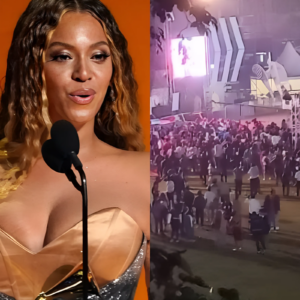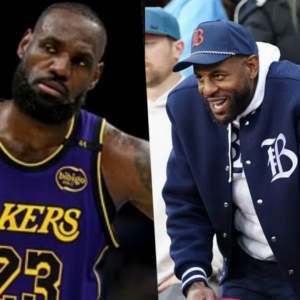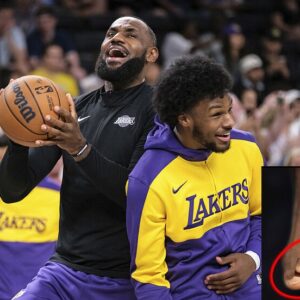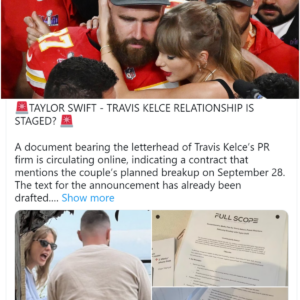In the era of rampant social media and relentless paparazzi, celebrities often find themselves under constant scrutiny, their personal lives dissected and exploited for public consumption. This reality is no different for global icon Beyoncé Knowles-Carter, whose rise to superstardom has been accompanied by both adulation and intense scrutiny. Recently, allegations surrounding Beyoncé’s familial relationships have sparked controversy, shedding light on the complexities of fame, family dynamics, and the moral obligations of public figures.

Wright’s account paints a heartbreaking picture of a young boy yearning for familial connection, only to be met with indifference from his half-sister. She describes Nixon as a reserved and quiet child, whose identity has been overshadowed by his famous lineage. Despite her own struggles and financial hardships, Wright’s primary concern is her son’s emotional well-being and his ability to forge his own path in life.
The revelation of Beyoncé’s alleged indifference towards her half-brother has prompted public outcry and debate. While some have defended Beyoncé, citing the complexities of family dynamics and the challenges of maintaining relationships in the spotlight, others have criticized her perceived lack of compassion and responsibility towards her own flesh and blood.
Moreover, Beyoncé’s alleged treatment of Nixon is not an isolated incident but part of a larger pattern of behavior that has come under scrutiny. Accusations of unethical practices, including allegations of plagiarism and exploitation, have plagued Beyoncé throughout her career. From allegations of unauthorized sampling of other artists’ work to accusations of using her influence to manipulate and control those around her, Beyoncé has faced criticism from both fans and fellow artists alike.
One such instance involves R&B singer Kelis, who accused Beyoncé of sampling her music without permission for her latest album, “Renaissance.” Kelis alleges that Beyoncé’s use of her song “Get Along with You” constitutes theft and a lack of respect for her artistic integrity. The controversy underscores larger issues of ownership and creative autonomy within the music industry, where artists often find themselves at the mercy of more powerful figures.
Additionally, Beyoncé’s former drummer, Kimberly Thompson, made shocking allegations of extreme witchcraft and sexual molestation against the singer, further complicating the narrative surrounding Beyoncé’s character and conduct. While these allegations have yet to be substantiated, they add another layer of intrigue to Beyoncé’s already complex persona.
In light of these allegations, Beyoncé’s carefully curated image as a feminist icon and champion of social justice has come under scrutiny. Critics argue that her actions, or lack thereof, contradict her public persona, raising questions about authenticity and accountability. As one of the most influential figures in the entertainment industry, Beyoncé wields considerable power and influence, making her actions all the more consequential.
Despite the controversy surrounding Beyoncé, her legion of devoted fans remains steadfast in their support, eager to defend their idol against any perceived attacks. For them, Beyoncé represents more than just a celebrity; she is a symbol of empowerment and resilience, a beacon of hope in an often tumultuous world.
In conclusion, the allegations surrounding Beyoncé’s alleged family dynamics and ethical conduct underscore the complexities of fame and the moral responsibilities that come with it. As a public figure, Beyoncé is held to a higher standard, expected to uphold principles of integrity and compassion in both her personal and professional life. Whether these allegations will have a lasting impact on Beyoncé’s legacy remains to be seen, but they serve as a reminder that even the most revered icons are not immune to scrutiny and criticism.
News
Diddy LEAKS Disturbing FOOTAGE Of Beyonce & Jay Z | New EVIDENCE Revealed
The unfolding drama involving Diddy, Jay-Z, and Beyoncé has captivated audiences worldwide. Allegations of scandalous tapes, federal raids, and personal vendettas have dominated headlines, leaving fans shocked…
Tiffany Haddish SHADES Jennifer Hudson For Stealing Common From Her
Tiffany Haddish is making it abundantly clear that she’s not thrilled about comments on new relationship with Jennifer Hudson. She threw some major shade at Jennifer, hinting…
Breaking: Beyoncé’s “Cowboy Carter” Tour Sees Lackluster Ticket Sales, “Only 1500 So Far”
In a surprising twist of fate, Beyoncé’s highly anticipated “Cowboy Carter” tour has encountered a lackluster start, with only 1500 tickets sold for its opening night. This…
“Blue ivy is pregnant” Cardi b Exposed truth about the pregnancy on live TV show says CONGRATS
Welcome to CB Gossip, your go-to source for all the juiciest entertainment news. Don’t forget to hit that subscribe button and ring the bell for more updates….
Kevin Hart FREAKS OUT As 50 Cent LEAKS New Video Of Him & Diddy..
Absolutely, let’s delve deeper into these issues. It seems like there’s a plethora of speculation and rumors surrounding celebrities and their connections to Diddy’s controversial activities. From…
Mike Tyson EXPOSES Members Of Diddy’s S3X CULT..
Unveiling Diddy’s Troubles: A Deep Dive into Allegations and Controversies In recent years, Sean “Diddy” Combs, the rap mogul and entrepreneur, has found himself embroiled in a…
End of content
No more pages to load











